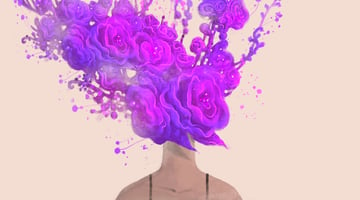Welcome to the The Skills Lab, a new blog series that I’m developing based on the idea that there...
Test and Learn (About Yourself)

There’s something about our current culture that seems to insist that we take personal change very seriously, and that we can force ourselves to operate differently purely through grit and determination. I prefer to think about change as a grand experiment.
I think this came about for a few reasons:
- I have an analytical brain, so a big part of me already wants to use data and facts to make a decision. I have realized that I can leverage that approach here, on myself. Test and learn!
- I learned iterative, incremental lean/agile principles at a pivotal point in my career and I now find it impossible to think or operate in any other way.
There’s also this cool approach to life that I learned about in my glancing encounters with Buddhism, which is called “the beginner’s mind”. This is the idea that there’s great advantage to approaching a new endeavor as a true beginner. Make zero assumptions about what you already know, or supposed expertise that you already have, because it is probably wrong and won’t serve you well on your adventure of discovery.
So, when we start to talk about the areas of study and techniques you can use to increase your awareness in subsequent blog posts, I’d encourage you to think about how you can make small moves and measure their effects in your life, treating it all like an experiment. I used to think that I would have some earth-shaking epiphany, and my whole life would change, but what has happened instead is that I’ve had about dozen epiphanies and made 100 small changes in my life, all of which have landed me in a very different place than I could have anticipated in advance. It is very emergent, all the time.
Also, it is worth noting that I’m still on my journey of discovery and I doubt it will end any time soon. And, given the well-worn mental and emotional paths I am often trying to reprogram, I am pretty “loopy” i.e. I’m relearning or remembering something that I thought I had already sorted out a while back. I think that might just be the nature of the thing.
I’ve also come to understand is that my rational brain is not good at predicting what my whole self will actually like in a new experience or a new way of being. I can make a “rational plan” and fully execute it, only to arrive at the new experience and find that I don’t like it. That’s generally because my rational brain didn’t fully appreciate all aspects of the new thing, and my emotions and body, once we’ve arrived, have something to say about it that is surprising. This has meant that I need to do more IRL experiencing of things when I’m trying to put something new in place.
There are two other concepts that I try to keep in mind while experimenting.
- Neuroplasticity – you can absolutely change your brain and learn new skills over time. This takes practice and repetition.
- Homeostasis – your entire being dislikes change. So, doing something new, trying out a new pathway on your neuroplasticity journey, will absolutely feel uncomfortable at times. What you’ll have to play close attention to is whether you are feeling discomfort because something is new or feeling discomfort because you actually dislike doing the new thing. Only you can know this difference, for yourself.
And last, but not least, to be good scientists of self, we must make a note of our findings with some regularity. I’ll probably write an entire blog post on the idea of noting things, but will just say now that paying close attention to your thoughts, emotions and physical feelings will only help you on your journey of discovery. More later.
How does change work for you? Do you hold things lightly, or do you have change in a death-grip? Is there an area of your life in which you could make a small change, just to observe what happens for you? What form would your next experiment take?
Resources:
- Getting Out of the Way: The Balance Between Homeostatis and Growth by Alison Bonds Shapiro, in Psychology Today. A really nice essay on homeostatis, change, and paying attention.
- The Inside Story of the Ever-Changing Brain – David Eagleman on the Unlocking Us with Brené Brown podcast. A great podcast episode on neuroplasticity and how we can keep learning new skills for as long as we want.
- Atomic Habits by James Clear. The masterclass on why we find change hard to make and how to use our own inclinations to make incremental yet meaningful change.



